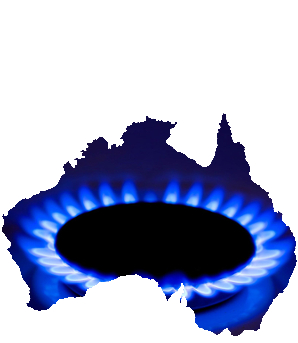Gas issues flow to Bowen
 Newly appointed climate and energy minister Chris Bowen is starting his new job by diving headlong into an energy market crisis.
Newly appointed climate and energy minister Chris Bowen is starting his new job by diving headlong into an energy market crisis.
Australia’s electricity prices surged late last week, hovering above $400/MWh in all states in the National Electricity Market.
On Wednesday, the Australian Energy Market Operator triggered the Gas Supply Guarantee Mechanism which calls for the market to release supply and come up with a plan to address a potential shortfall.
Gas producers in Queensland have responded to shortfalls in the southern states, following AEMO’s activation of the Gas Supply Guarantee mechanism, which placed administered price caps ($40 per gigajoule) in the Sydney and Brisbane short term trading markets.
However, the problem is over a decade in the making, with Australia consistently gripped by stalling and inaction on renewable energy and storage leaving it badly exposed to the surge in costs of fossil fuels and the increasing unreliability of coal generators.
Mr Bowen went back over recent history in a press conference last week.
“I don’t hold the former government accountable for any particular element of the situation, the serious situation we are facing… I do say this though; The former government’s nine years of denial and delay, their 23 energy policies, their changes of policy approaches have left Australia ill-prepared and our energy markets ill-prepared for the challenges we face today in relation to gas and energy supply,” he said.
Supply chain issues, coupled with an ongoing war in Ukraine, have shocked the global trade of energy resources.
Australia has huge amounts of coal seam gas which has been allowed to be exported with none reserved for Australia, which has ultimately led to a situation where Australians are paying for gas prices at global parity.
As European customers scramble to diversify away their dependence on Russian coal, oil and gas, global prices for those resources grew rapidly. Australia, as a free market economy with little trade barriers, is also exposed to those shocks.
With no end to the war in Ukraine in sight and a pick-up in economic activity in China, experts say the high prices are here to stay in the short to medium term.
The federal budget is still deep in the red, so expensive solutions like last year’s cut in petrol excise are unlikely to be repeated.
The healthy profits gas exports are currently experiencing are likely to make Western Australia-style requirements to reserve a proportion of the gas for domestic use a very realistic option in the short-term.
In the longer term, the road to renewables will not only help the nation tackle climate change, but also make it more immune to external shocks.








 Print
Print